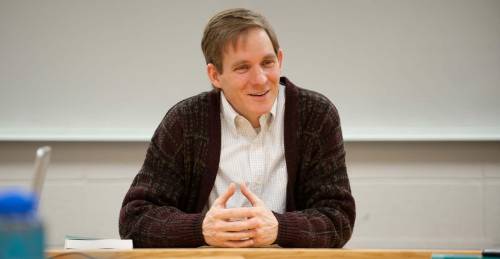Rooting for China
Peace in the World
Randall Stone
Matthew 5:9
“Blessed are the peacemakers, for they will be called children of God.” (NRSV)
Reflection: To many, China has become a disquieting word within American political and economic discourse. Pundits and politicians worry about the time, coming soon, when the U.S. economy will no longer be the largest on the planet. Some analysts point to historical parallels, suggesting that war is likely during a power transition. Presidential candidates charge each other with being “soft” on China, as they once did in reference to the Soviet Union. Indeed, China offers a troubling image as a repressive regime that tramples the rights of ethnic groups and citizens of Hong Kong, and that is becoming more belligerent towards its neighbors. Avoiding violent conflict with China may not be easy, but it is essential.
Peacemaking requires hard work, starting with a shift in perspective that takes us away from realpolitik and focuses instead on shared goals and the necessary conditions to achieve those goals. To start: it’s important to remember that the world needs China. China will be an essential partner in current and future struggles with climate change and infectious diseases. The dynamism and innovation of the world economy depend on engaging the talents of all of the world’s people, which requires open markets and the exchange of ideas. There are no attractive future scenarios without peaceful coexistence with China.
Second, the alternative to China becoming the largest economy in the world is to keep one-fifth of the world’s population in permanent poverty. China has a population of 1.4 billion, so its economy will surpass the size of the U.S. economy when it reaches roughly 23% of the U.S. standard of living. China’s economic growth has been impressive, but it started from a low level: 88% of China’s population was under the international poverty line in 1980. China has been returning to its historical share of world GDP after recovering from a series of disasters in the 20th Century — civil war, invasion during World War II and economic mismanagement and famine under communism — which had reduced most of its population to subsistence agriculture. Raising 850 million people out of poverty yielded impressive growth rates, but still leaves China a poor country with about one-sixth the U.S. level of per capita income. We should be rooting for the people of China, encouraging their rise out of poverty even as we encourage their government to relax its iron grip of control over them.
Third, U.S. supremacy is not a necessary condition for sustained peace, nor is it sufficient to guarantee security. In fact, the effort to maintain a temporary advantage may well undermine world order. In the long run, a peaceful world is hard to envisage without multilateral cooperation that allows all of its peoples to strive for development.
Practice for Peacemakers: Read an article in an international newspaper, and try to put yourself in the writer’s perspective. It is good to regularly leave your comfort zone and challenge some of your assumptions.
Prayer: God, free us from the idolatry of trusting in power for our safety. Free us from the sin of fear: fear of others, fear of loss of control, fear of the future. Grant us the courage to engage in the hard work of negotiating fair and equitable settlements that allow room for all of your people to reach their full potential.

Randall Stone is a professor of political science at the University of Rochester and the author of books and articles on international relations. He is a member of Henrietta United Church of Christ and treasurer of Genesee Area Campus Ministries.
This year’s Season of Peace Resources are designed to help participants explore practices for building peace on every scale. From the personal level to global issues, these reflections and prayers will help grow the faith and witness of the whole church. Throughout the 29 days of the 2020 Season of Peace, we are invited to reflect upon:
Week 1 September 6–12: Peace Within
Week 2 September 13–19: Peace in Relationships
Week 3 September 20–26: Peace in Community
Week 4 September 27–October 3: Peace in the World
Final Day October 4: Holistic Peacemaking

Very thoughtful commentary. It seems to go along with the idea of shedding the concept of “American exceptionalism”. We need to take our place in the world as a constructive partner and stop thinking about power and domination.